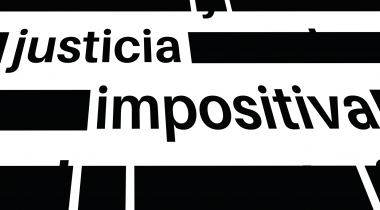George Turner ■ Financial secrecy in football: time for action

Everyone has known for years that football is rotten to the core and financial secrecy is at the heart of the problem. Why then is no one doing anything about it? This post from the Offshore Game project originally features in the Independent.
There has long been overwhelming evidence of corruption in football: from the many hidden conflicts of interest in club and player ownership, to the prevalence of match fixing and the stark lack of accountability of football associations, both national and global. In each case, people in the game make money. In each case, the growing costs of a crooked, ugly game are borne by the fans – without whom neither the game nor the money involved would exist.
This week’s revelations from The Telegraph’s undercover investigations are not, primarily, a smoking gun about individual criminality. What they demonstrate most powerfully is the continuing existence, and casual acceptance, of a culture of corruption. Dubious money is taken for granted – and so too, the willingness of others to accept it. The kind of behaviour which festers in an environment of bad regulation.
Parliament’s Culture Media and Sport Committee held a major inquiry into sports governance in 2011. During that inquiry sports minister Hugh Robertson said “if you look across sport, it is very clear to me that football is the worst governed sport in this country, without a shadow of a doubt.”
Five years later, what has changed?
The inquiry found the Football Association to be arrogant, complacent, and to have taken fans for granted. Each of those claims was promptly proven by the FA, who proceeded to ignore the urgent reforms that were recommended.
While European football authorities brought in some regulations under the “Financial Fair Play” scheme, the FA did little more than introduce a farcically unworkable “fit and proper person” test for club owners. The whole sorry affair is no better illustrated by the tragicomedy of Leeds United.
The Parliamentary inquiry singled out Leeds in their 2011 report, saying “there is no more blatant an example of lack of transparency than the recent ownership history of Leeds United.”
Did things get any better? No. In 2012 the club was taken over by Gulf Finance House (GFH). The company bought the club through a Dubai company and transferred ownership to LUFC Holdings Limited based in the Cayman Islands. David Haigh, who fronted the deal, spent 22 months in a Dubai prison because GFH accused him of illegally taking money out of the company owning the club. Haigh was not charged and maintains his innocence.
Leeds was then bought by Massimo Cellino, who was convicted in Italy of tax fraud and as a result told to give up his ownership of Leeds. In the ensuing dispute with the FA, Cellino’s lawyers are believed to have said that the ownership of the club is in fact through a blind trust and not with him personally – despite the earlier statement to the football authorities that Cellino had acquired a controlling stake.
In February 2015 Cellino then said he had divested himself from a minority stake in the club, and would not return to the club after his ban expired. He returned in May that year – but even that wasn’t the end of it. Cellino was then banned a second time for more tax offences, was acquitted, promised the sell the club, then didn’t and now finds himself the subject of investigation – having apparently offered on camera to flog 20 per cent of the club to theTelegraph’s fake firm, as a way to get around 3rd party player ownership rules.
Neither is it just in England where we have a problem. In 2012, one year after the CMS committee reported, Rangers, one of the most famous clubs in European football, collapsed in spectacular fashion, owing millions to the tax man and many others. We published a report into the affair this year, showing serious failings in the Scottish Football Association in the period leading up to the club’s financial collapse. What has been the response of the SFA? SFA. The same people who presided over one of the biggest financial disasters in European football are largely still in place, and the financial position of Rangers is hardly any better. Despite being given a fresh start though bankruptcy and writing off of tens of millions of pounds worth of debt, Rangers fans once again find themselves on the wrong side of financial opacity and serious concerns about the club’s future.
It is inexcusable that while there is broad consensus on the need for a step change in transparency and accountability, the various football associations of these islands have not delivered any serious progress.
Journalists have now done a great job in creating public profile for the on-going failure to clean up the game. Now, there may finally be a realistic opportunity for real change. Consider a lesson from a different sphere of financial secrecy. The “LuxLeaks” scandal revealed how the accounting firm PwC had helped many multinationals negotiate secret deals with Luxembourg, to shift massive profits out of the tax net of other countries. Of course, governments all around the world knew all about these practices for years, but it was only the global media profile given to it by the expose by the International Consortium of Investigative Journalists that drove policymakers finally to challenge those abuses.
An overarching issue is the need for genuine representation of fans’ interests, from the promotion of fan ownership to the creation of non-executive director positions at football associations.
Fans, football associations and clubs should not resist the need for stricter regulation, even legislation – if that is required. We elect our parliament, and if parliament decides it is appropriate to take action that is in the public’s interest, after having given the game every opportunity to sort itself out, then it must do so. It is the democratic process working well.
Fifa and Uefa have long opposed such “political intervention”, but these are organisations with no right even to speak of good governance. Our football authorities don’t complain of government interference when they accept public money. The English FA, for example, has received in excess of £160m from various branches of government to rebuild Wembley Stadium. That is a significant amount.
Parliamentary legislation to improve football governance was a course of action recommended as a last resort by the CMS committee chair, John Whittingdale. On the publication of the report he said: “Almost all our recommendations could be achieved without legislation, through co-operation and agreement between the football authorities, and we urge them to respond positively with an agreed strategy and timetable for change. Legislation should considered only as a last resort in the absence of substantive progress.”
We have surely now passed that point of last resort. It is time to begin, through legislation, the slow process of eliminating the financial secrecy that breeds corruption in the beautiful game.
Related articles

The secrecy enablers strike back: weaponising privacy against transparency
Privacy-Washing & Beneficial Ownership Transparency
26 March 2024

New Tax Justice Network podcast website launched!

El secreto fiscal…tiene cara de mujer: January 2024 Spanish language tax justice podcast, Justicia ImPositiva

Tax Justice Network Arabic podcast #73: ملخص 2023

Get rich cheating in our (educational) tax dodgers version of monopoly

New report on how to fix beneficial ownership frameworks, so they actually work

The Tax Justice Network’s most read pieces in 2023

La victoria de Milei y su repercusión: December 2023 Spanish language tax justice podcast, Justicia ImPositiva


